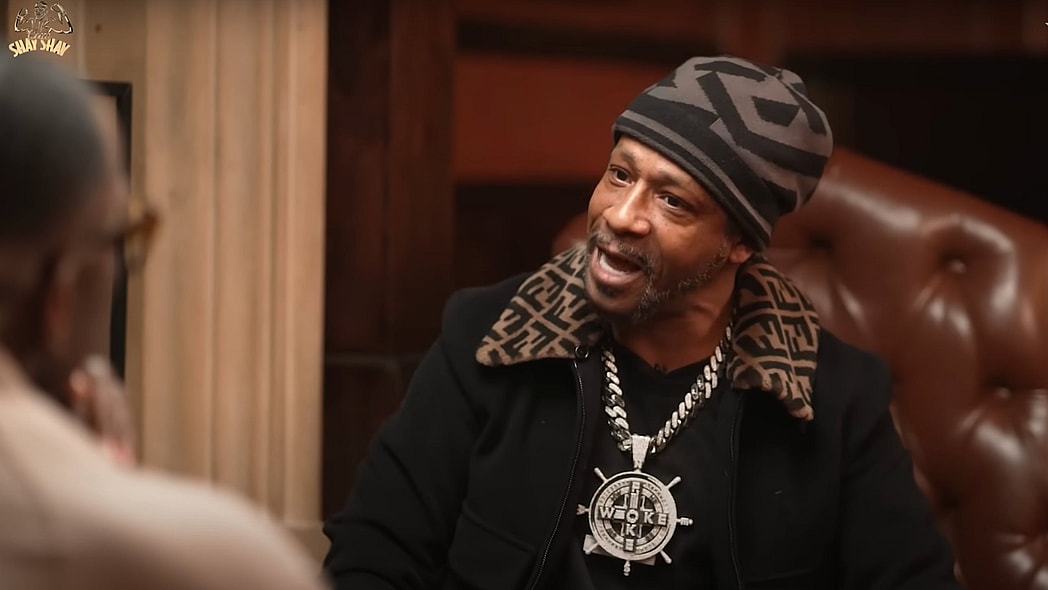“Notes on faith” is theGrio’s inspirational, interdenominational series featuring Black thought leaders across faiths.
Is it just us, or has there seemingly been a truth-telling tour rippling throughout the entertainment industry as of late? Its latest stop was a viral interview on “The Breakfast Club,” where Grammy Award-winning gospel artist and pastor Tye Tribbett made a revelatory admission: the current system and the structure of “the [Black] church is whack.” Tribbett’s assessment that “the church” is losing its relevance came in response to questions about the perceived decline of celebrity pastors’ personae in pop culture. Reminiscent of the warning delivered in his song “Sinking,” Tribbett said further: “The Church should be about the people, but the Church makes the people about the Church … They’re not serving and loving the people.”

While there is undoubtedly some truth in his comments, Tribbett has predictably received backlash from ministers like Pastor Mike McClure, Jr., who took to social media to say the musician should have kept his critique in-house — and alternately, could have highlighted spiritual colleagues doing the work of making ministry accessible.
Nevertheless, the question remains: How are the majority of ministers both living the life and preaching the gospel in accessible ways?
While many “saints” may refute the idea that the church is whack, Tribbett’s words were not lost on Pastor Melech E.M. Thomas, who entered the collective chat through footage of one of his sermons, demonstrating how he is redefining gospel music; music that uplifts him. Last Sunday, at the Payne Memorial AME Church in West Baltimore, Pastor Thomas delivered a sermon that has since gone viral, precisely because he spoke in an idiom and language everyday people can recognize, surprisingly using lyrics from someone he proposed is a “new gospel artist” GloRilla’s “Tomorrow.”

“I love good gospel music, and there’s this new gospel artist,” Thomas preached. “Some of you might know her, some of you don’t. … She’s from Memphis. Her name is Gloria Hallelujah Woods. Some of you might know her as GloRilla — yes, GloRilla … Well, GloRilla has a song called “Tomorrow,” and she makes this statement that blesses me. She says, ‘Every day the sun don’t shine, but that’s why I love tomorrow.’ And I’m talking to some people, that life ain’t been the kindest to you. But you understand that what Big Momma said all the time was right: ‘That weeping may endure for a night, but joy comes in the morning.’ That every day is not good. But as long as I can make it to tomorrow, something can turn around. Come on, look at your neighbor and say, ‘Yeah, Glo.’”
To be clear, it is not just the fact that Thomas quotes a rap artist — most Black churchgoers know that can happen on any given Sunday. No, it is the fact is that unlike some of his Baltimore pastoral cohorts who have taken cheap shots at Black women, sex workers, and those adjacent to them — even employing lyrics like “These Hoes ain’t Loyal” — Thomas handled and offered as holy an artist’s work that many would consider profane due to its sexually explicit and adult content.
Speaking with Rev. Thomas, a colleague and friend, he explained to us why and how he uses hip-hop as a lens to interpret scripture. “We need to be listening to the music our young people are listening to,” he said. Just like those of us who grew up with hip-hop and other forms of urban youth music — such as go-go, house music, trap and other styles — there is something to be said for recognizing and repurposing the same styles, expressions and storytelling popular artists use to deliver messages that can be heard and understood.
As scholars and ministers, we understand there have always been tensions within the faith community around the use of “worldly music” in addressing the times. Thomas says he is inspired by preachers like brothers and go-go pastors Revs. Tony and Bill Lee of Community of Hope, who are often commended for an out-of-the-box approach to ministry. Like Rev. Thomas, Revs. Tony and Bill Lee come out of an AME tradition replete with preachers who embrace the Black prophetic tradition. From remixing go-go music to starting a church in a strip club (yes, really), these two brothers in blood and ministry illustrate that God can use anyone and anything to bring about hope, transformation and empowerment — for individuals and a community.
However, Thomas did not always agree with their culturally relevant technique. In fact, he confessed that when he was 13 years old, he did not like that the Lee brothers referenced hip-hop and go-go music in their sermons. He found their style so problematic, he spoke with Rev. Tony Lee to challenge his methodology. In a pivotal mentorship moment, Lee explained to Thomas that he preaches in a language the people recognize — and Thomas soon began to notice the solid ethics and results that followed.
Recommended Stories
If the faith community desires to continue to be relevant and forward-thinking, there are three components around which we all should be open to hearing and seeking understanding:
Authenticity and Transparency: The faith community can dare to be authentic and transparent about the real challenges of one’s faith as a human being. One can connect with the community authentically without compromising one’s values. Fighting through the discomfort of sharing shortcomings can be both instructive and enduring for audiences seeking to connect.
Adaptability and Innovation: As society evolves, the church must be open to adapting its approach to remain culturally relevant and effective in meeting the needs of local communities. Tye Tribbett’s critique suggests a need for the church to embrace innovation, exploring new approaches to ministry that prioritize the well-being and empowerment of individuals over tradition, so-called sanctity and institutional preservation.
Empowerment and Service: The faith community should prioritize empowering individuals to actively participate in the work of the church and to serve others in meaningful ways. Tye Tribbett’s emphasis on the church being about the people underscores the importance of shifting focus from institutional concerns to the holistic growth and empowerment of its members.
In short, let those of us in spiritual leadership anticipate and be open to more conversations about how to engage our communities with a message of hope, and to use language and styles that stretch us. Let us be intentional in having moments of introspection and celebrate the moments where we challenge ourselves to grow. We are better positioned to gain new heights and greater depths when we are willing to hear from others who use language or share critiques we may not get from our inner circles. When we set our egos aside, we can trust that the Creator of the Universe will use whoever, whenever and whatever is needed, however it may be necessary. May we remain open to all the ways we are guided to be holistically upgraded in our theology.

Rev. Dr. Alisha Lola Jones is a faith leader helping people to find their groove in a fast-paced world, as a consultant for various arts and faith organizations and professor of music in contemporary societies at the University of Cambridge in Cambridge, England. She is an award-winning author of Flaming? The Peculiar Theopolitics of Fire and Desire in Black Male Gospel Performance (Oxford University Press). For more information, please visit DrAlisha.com.
Rev. Calvin Taylor Skinner is dedicated to empowering frontline communities in Knoxville, Tenn. and the United Kingdom. He uses faith and policy to address energy justice, criminal justice reform, voter education/mobilization, electoral politics, and global affairs. Along with his wife, Rev. Dr. Alisha Lola Jones, they lead InSight Initiative, a consulting firm focusing on capacity building and live events production.
Never miss a beat: Get our daily stories straight to your inbox with theGrio’s newsletter.









